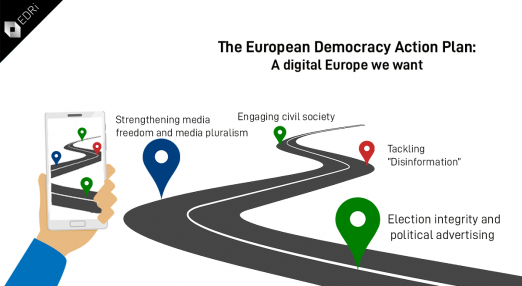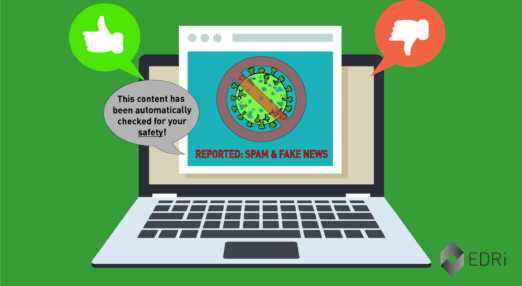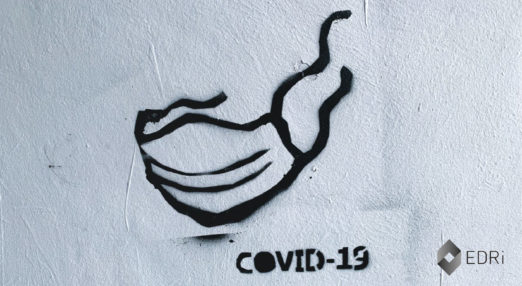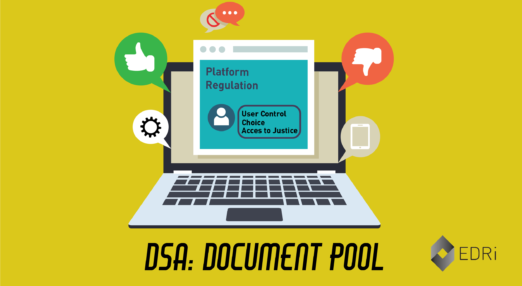What you need to know about the Facebook Papers
Facebook is now undergoing what may be the tech giant’s biggest crisis in its 17-year history. In October, The Washington Post reported that a second Facebook whistleblower came forward to the U.S. Securities and Exchange Commission, alleging that the company prioritises growth over combating hate speech, disinformation, and other threats to the public. The whistleblower’s testimony follows that of former Facebook employee Frances Haugen, whose legal counsel released what’s known as the Facebook Papers — a 10,000-page collection of internal reports, memos, and chat logs leaked to more than a dozen major news outlets.
Filter resources
-

What you need to know about the Facebook Papers
Facebook is now undergoing what may be the tech giant’s biggest crisis in its 17-year history. In October, The Washington Post reported that a second Facebook whistleblower came forward to the U.S. Securities and Exchange Commission, alleging that the company prioritises growth over combating hate speech, disinformation, and other threats to the public. The whistleblower’s testimony follows that of former Facebook employee Frances Haugen, whose legal counsel released what’s known as the Facebook Papers — a 10,000-page collection of internal reports, memos, and chat logs leaked to more than a dozen major news outlets.
Read more
-

Disinformation and propaganda: It’s all political!
The disinformation and propaganda campaigns in the European Union (EU) are inexplicably tied to the political parties that misuse the tools of mass media communications to spread fear and deceit (Euractiv, 2021). The media exemption currently debated within the scope of the Digital Services Act (DSA) that would prevent digital intermediaries from interfering with content posted by media outlets is an early Christmas present to the disinformation agents, as it would enable them to continue with their propaganda production, fueled by algorithmic distribution.
Read more
-

How can “interoperability” strengthen our choices and privacy online?
Brussels is moving into high gear on internet regulation, as the text of the much-anticipated Digital Services Act (now with an additional Digital Markets Act) is due to be published by the European Commission on 2 December.
Read more
-

How the Parliament stakes out its DSA position
With three European Parliament positions on the Digital Services Act coming up, what will it mean for people's rights in the digital world?
Read more
-

Towards a digital Europe we want: the European Democracy Action Plan
On 14 September, EDRi submitted its response to the European Democracy Action Plan (EDAP) consultation. The EDAP, echoing the existing EU Action Plan on Human Rights and Democracy, focuses on preserving European democracies. The EDAP intends to address numerous challenges such as shrinking civic space, electoral interference, disinformation and the difficulties faced by journalists.
Read more
-

Cryptocurrency scammers flood Facebook users with manipulative ads
Scammers using fake Forbes articles and anti-EU disinformation as bait continue to target Facebook users across Europe, the EDRi member Metamorphosis Foundation has warned.
Read more
-

COVID-Tech: COVID infodemic and the lure of censorship
In EDRi's series on COVID-19, COVIDTech, we will explore the critical principles for protecting fundamental rights while curtailing the spread of the virus, as outlined in the EDRi network's statement on the virus.
Read more
-

Why COVID-19 is a Crisis for Digital Rights
The COVID-19 pandemic has triggered an equally urgent digital rights crisis. New measures being hurried in to curb the spread of the virus, from “biosurveillance” and online tracking to censorship, are potentially as world-changing as the disease itself.
Read more
-

Digital Services Act / Digital Markets Act: Document pool
The DSA-DMA package will affect how intermediaries regulate and influence user activity on their platforms, including people's ability to exercise their rights and freedoms online. It also aims at limiting the abuse of power by very large and gatekeeper platforms.
Read more
-

Everything you need to know about the DSA
We have created a document pool in which we will be listing relevant articles and documents related to the DSA. This will allow you to follow the developments of content moderation and regulatory actions in Europe.
Read more
-

EDRi calls for fundamental rights-based responses to COVID-19
Some of the actions taken by governments and businesses under exceptional Coronavirus circumstances today, can have significant repercussions on freedom of expression, privacy and other human rights both today and tomorrow.
Read more
-

Facebook starts to increase transparency in political ads in the Balkans
Facebook has announced that it will expand its transparency system and confirmation of authenticity of ads about elections and politics starting from mid-March. Namely, Facebook will cover 32 additional countries, including Serbia and North Macedonia where the elections are to take place very soon.
Read more
